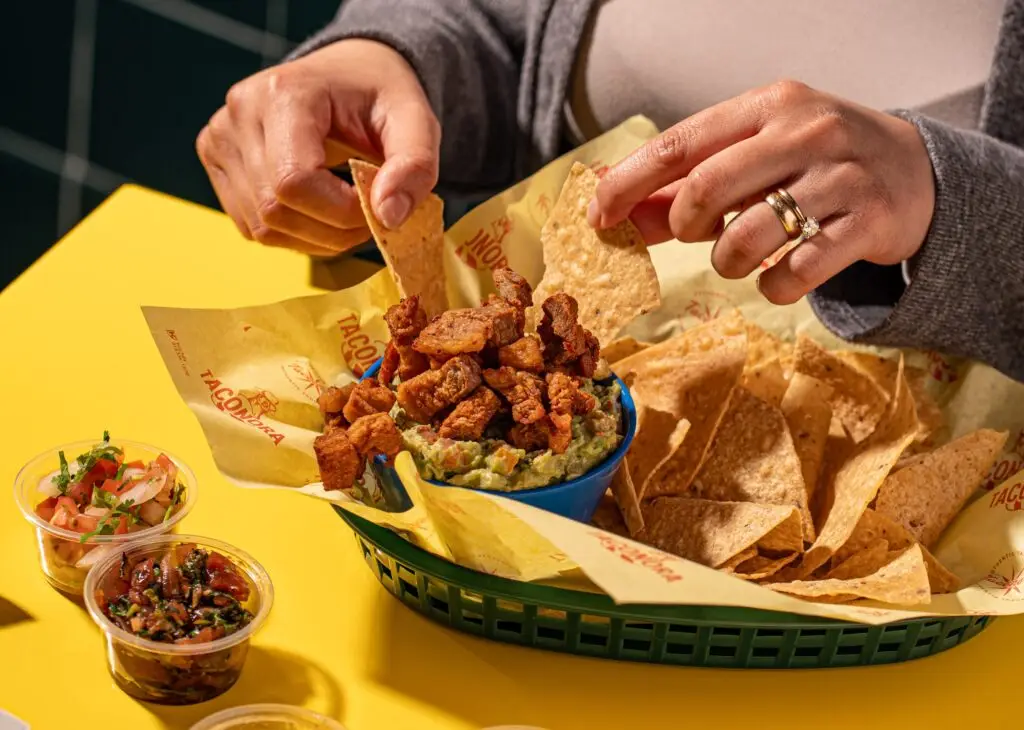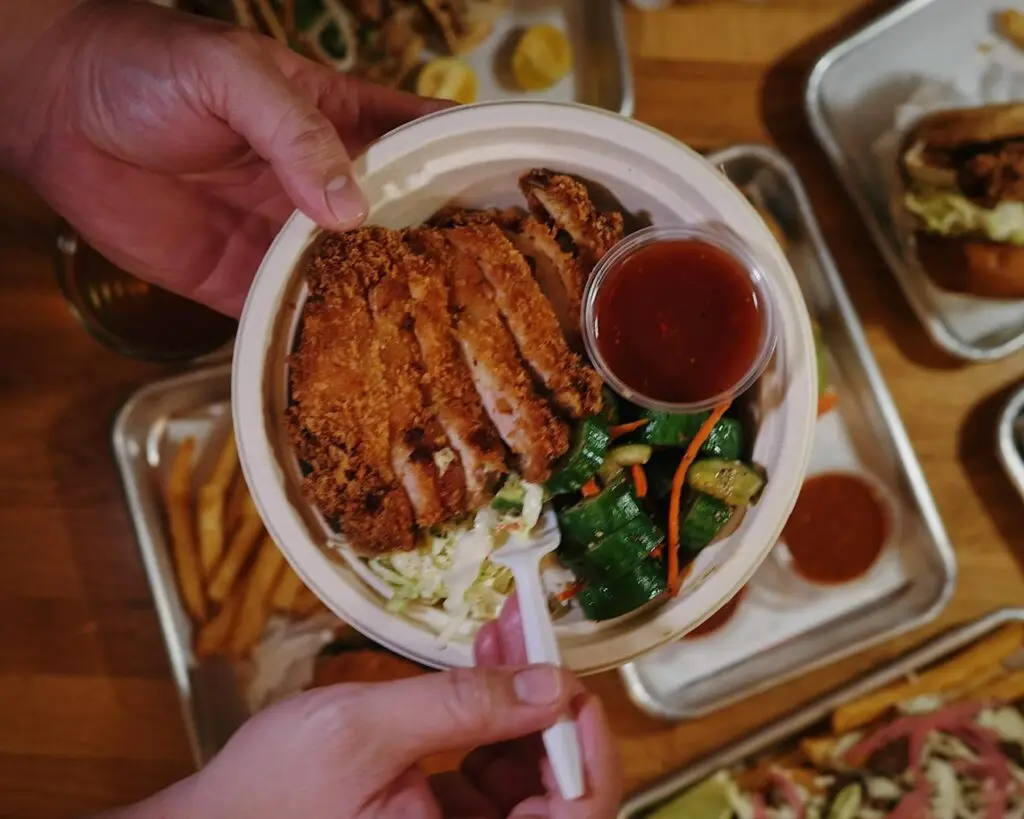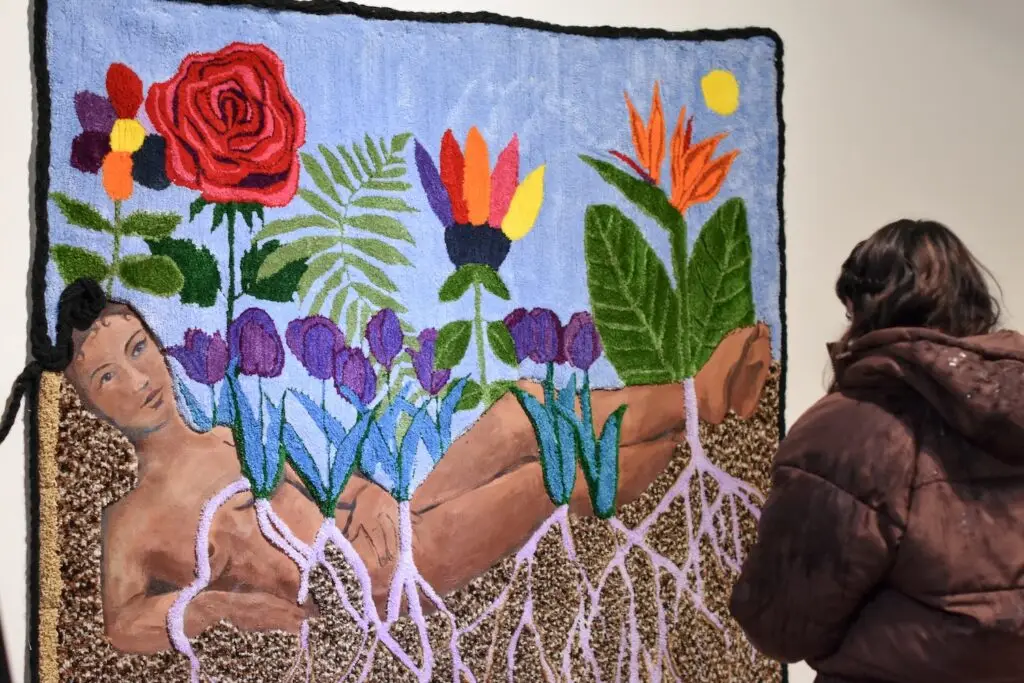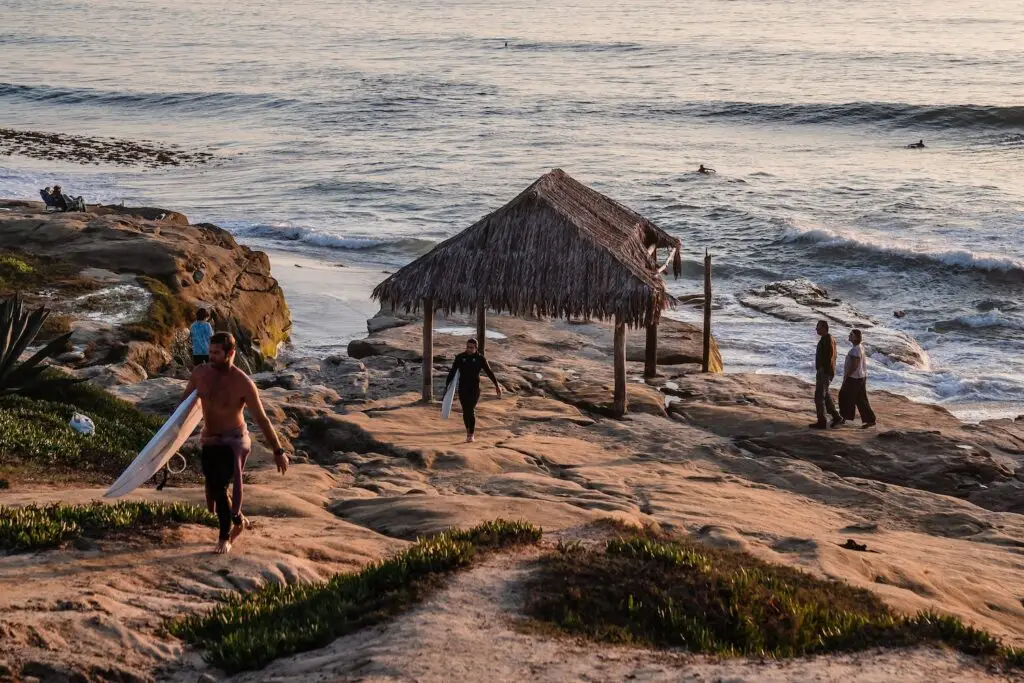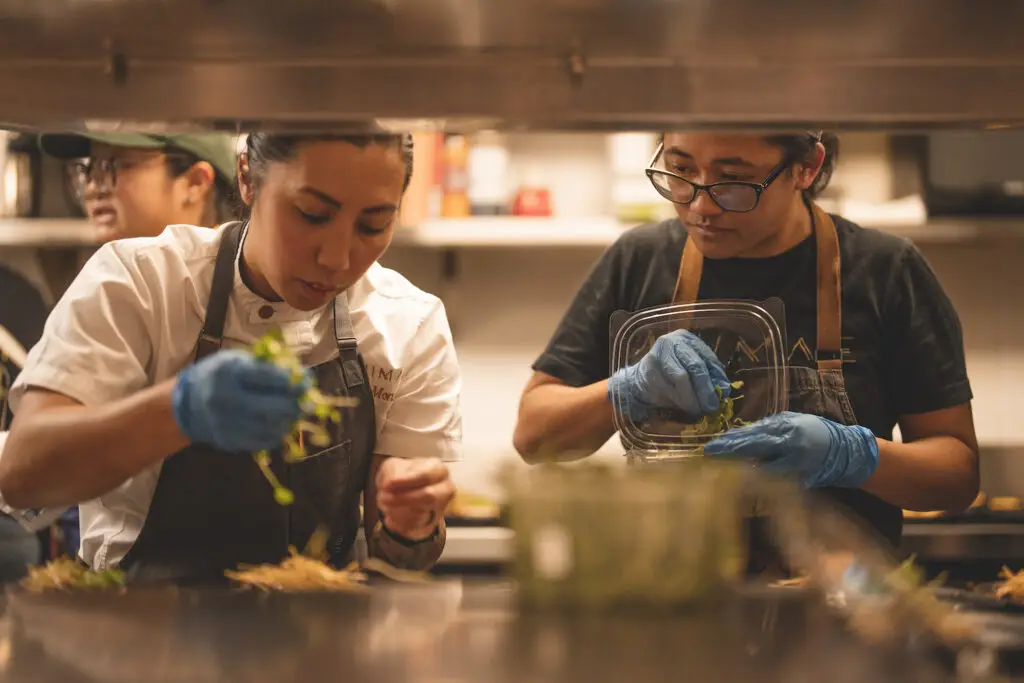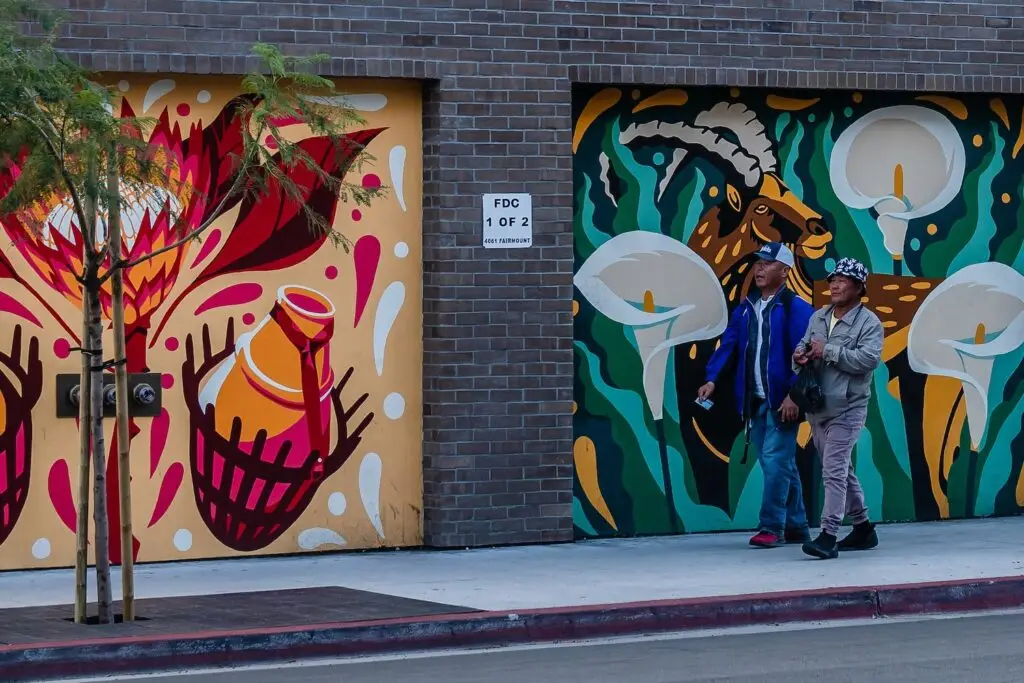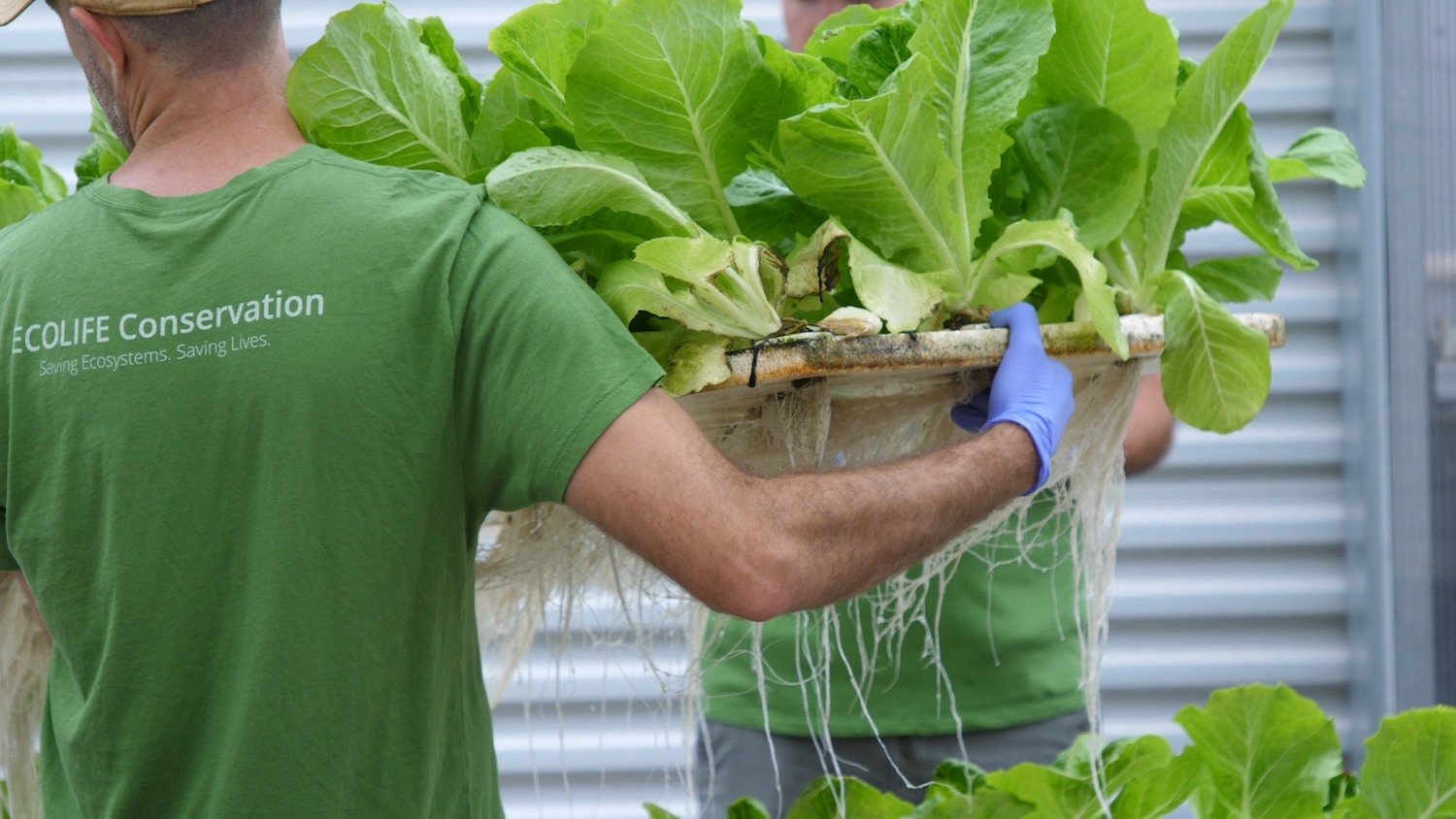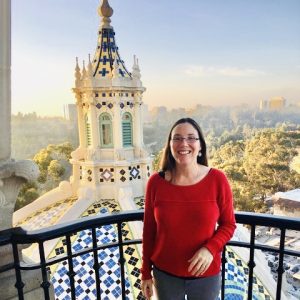It’s Taco Tuesday. As tribal elders enter Pala’s administration building for lunch, they exchange greetings and eagerly anticipate their favorite dish: freshly prepared taco salad. One woman grasps a puzzle, quietly approaching two others who quickly dig into the pieces. Laughter rings out among a group of men. Each weekday this group of 20 seniors, many of whom live alone, gather together at folding tables for a hot meal and conversation.
Kitchen supervisor Ray St. Charles works tirelessly at this hub of health and community. “We love seeing our seniors get out of the house. This is a way to see them busy, feed them a hot, healthy meal, and know we’re taking care of them,” he says. The kitchen staff also prepares over 200 meals daily which they deliver to homebound Pala seniors and four other North County tribes.
And soon, more fresh food will be growing here on the reservation. The tribe is partnering with North County nonprofit Ecolife Conservation to construct a state-of-the-art aquaponics system. The unit, called the MARK—or Modular Aquaponics Response Kit— operates entirely off-grid using solar panels, battery storage, and a rainwater collection system.
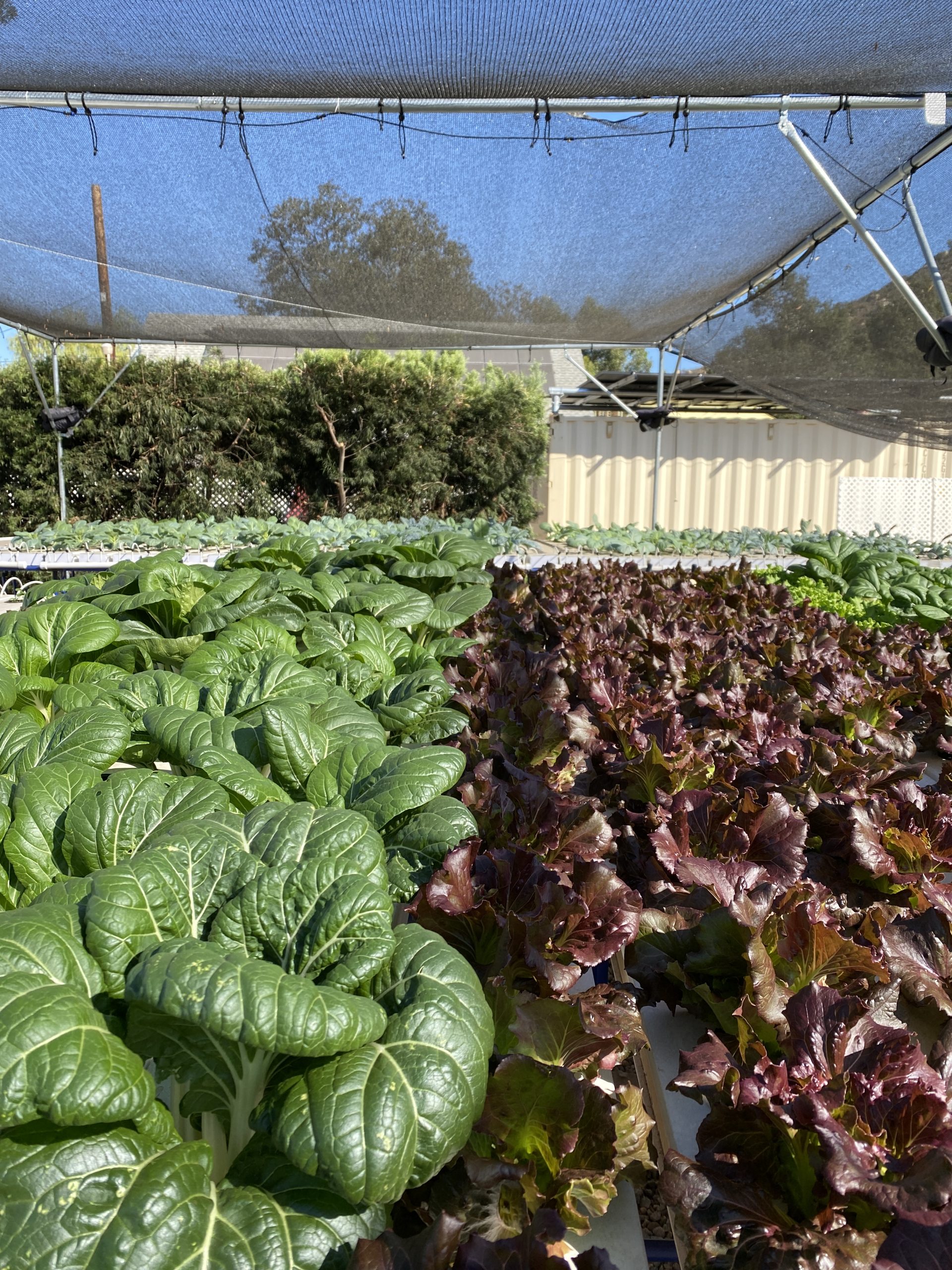
Inspired by the need to address challenges of disrupted food supply chains during the pandemic shutdown, the MARK’s powers include the ability to grow more than 1,600 plants at a time, mostly leafy greens, all while using 90 percent less water and land than traditional in-ground growing, explains Connor Leone, Ecolife’s sustainable agriculture program director.
“We see tremendous potential for aquaponic systems like the MARK in San Diego and beyond,” Leone says. “They can yield more than 150 pounds of harvestable fish annually, on a 1,200-square-foot footprint.”
The kits are an innovation in aquaponics, a growing method that combines aquaculture (raising fish) and hydroponics (cultivating plants in water). In a recirculating system, fish waste and bacteria provide nutrients directly to growing plants.
Ecolife’s partnership with local tribes is a natural fit. The nonprofit’s central mission to cultivate impactful solutions by designing and distributing new sustainable technology has long supported indigenous people.
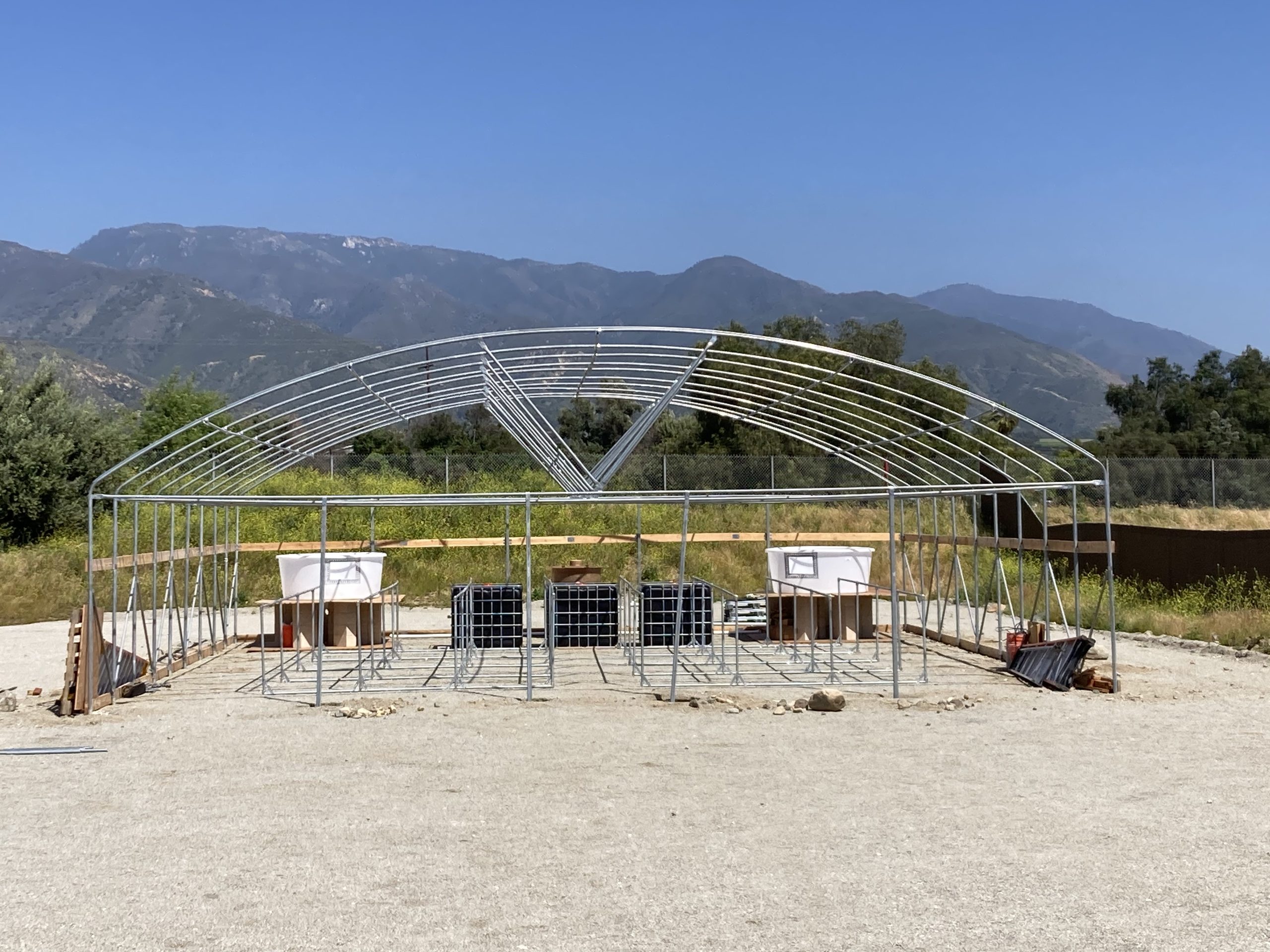
In the tribe’s native Luiseño language, Pala means water. “Because Pala is not connected to a water district, it is vital that the tribe carefully manage its groundwater resources,” says Dr. Shasta Gaughen, Pala’s environmental director.
“This aquaponics project is a crucial step toward water conservation,” adds Chris Nejo, project lead and legal analyst for the tribe. “Everyone is feeling the effects of climate change. The system will allow us to grow vegetables and fish with very little runoff or evaporation.”
Cultivating organic native plants is an important tribal goal that the MARK system may help address.
“We have the opportunity to grow culturally significant plants such as miner’s lettuce, stinging nettle, and wild artichoke without fear of contamination caused by runoff from surrounding agriculture,” Nejo says. The tribe also plans on growing native medicinal and ceremonial plants once they are comfortable operating the system.
Later this summer, Ecolife will begin constructing a second MARK system at the Viejas Reservation with similar tribal goals such as education, crop variation, and produce distribution.
PARTNER CONTENT
For the tribes, more food sovereignty isn’t viewed as mere independence, but an interconnectedness.
“We at Pala are fortunate with resources,” Gaughen says. “It means so much to be able to share with other tribes. This opportunity allows us to educate our youth, build new jobs, and showcase our commitment to community and well-being.” Including those seniors every Taco Tuesday.
